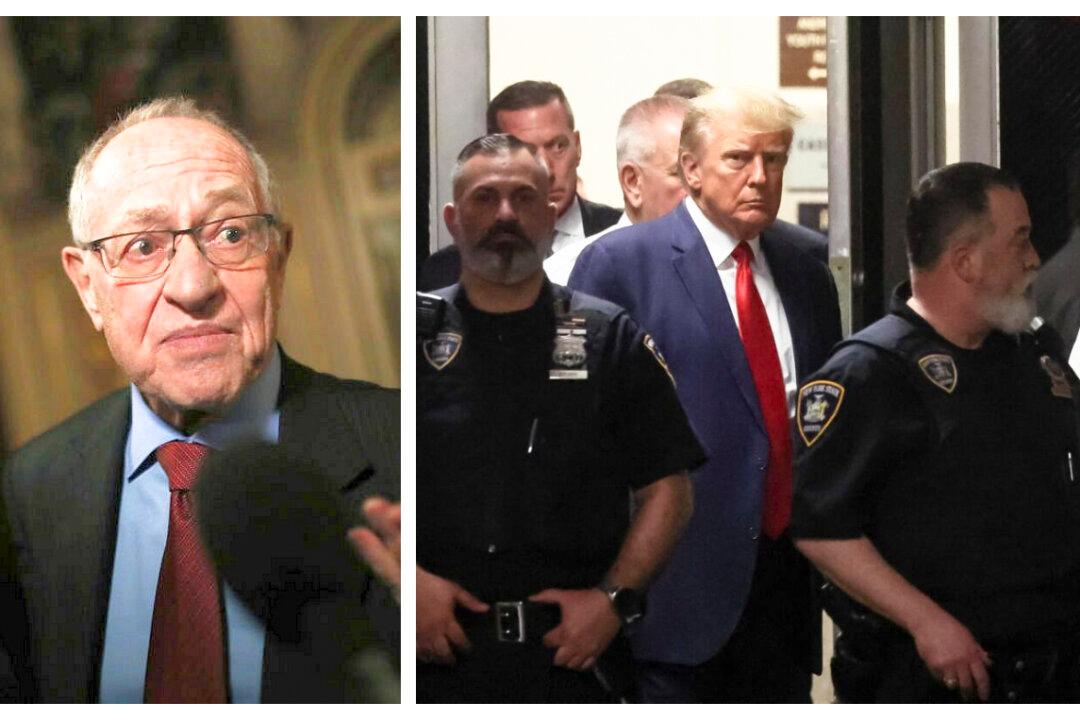Retired Harvard law professor Alan Dershowitz said on April 28 that he believes that Manhattan District Attorney Alvin Bragg’s case against former President Donald Trump could fail because prosecutors have charged the former president with fake crimes.
“There is no crime,” Mr. Dershowitz said during an interview on Fox News on April 28, referring to the case in which Mr. Bragg’s office has charged the former president with 34 counts of falsifying business records to hide so-called hush money payments that prosecutors allege amounted to a criminal conspiracy to influence the 2016 presidential election.





